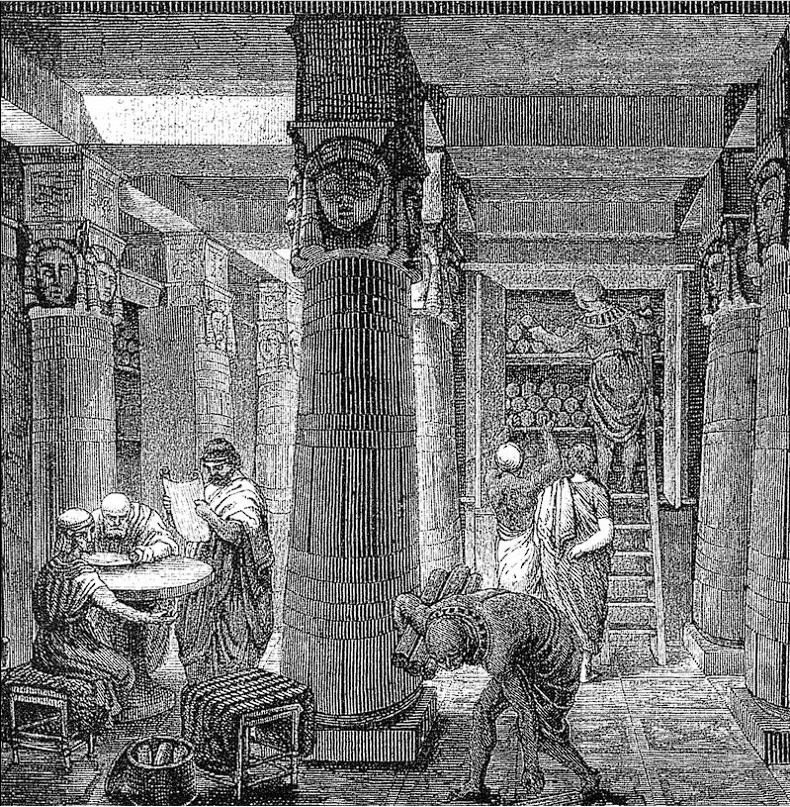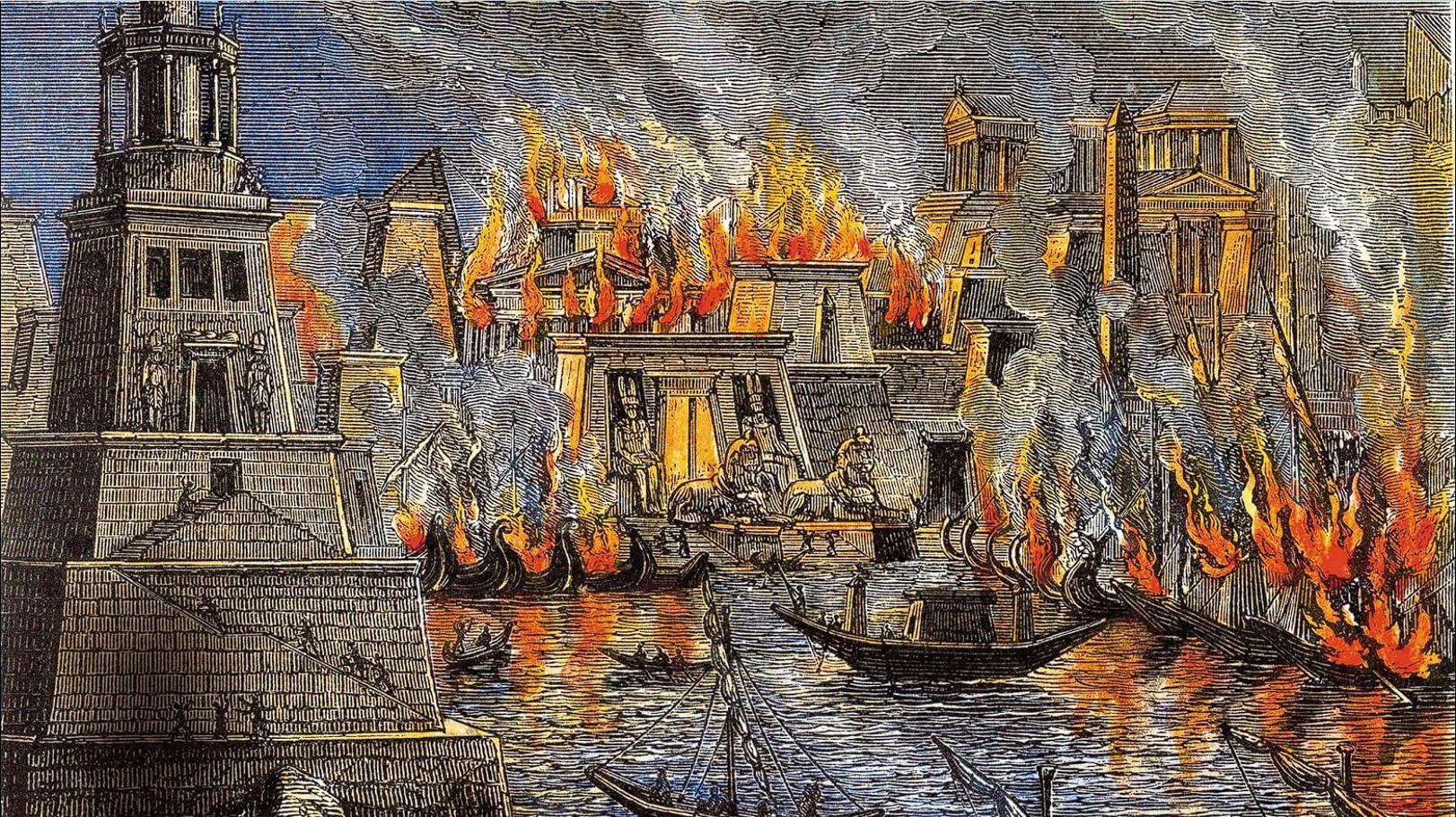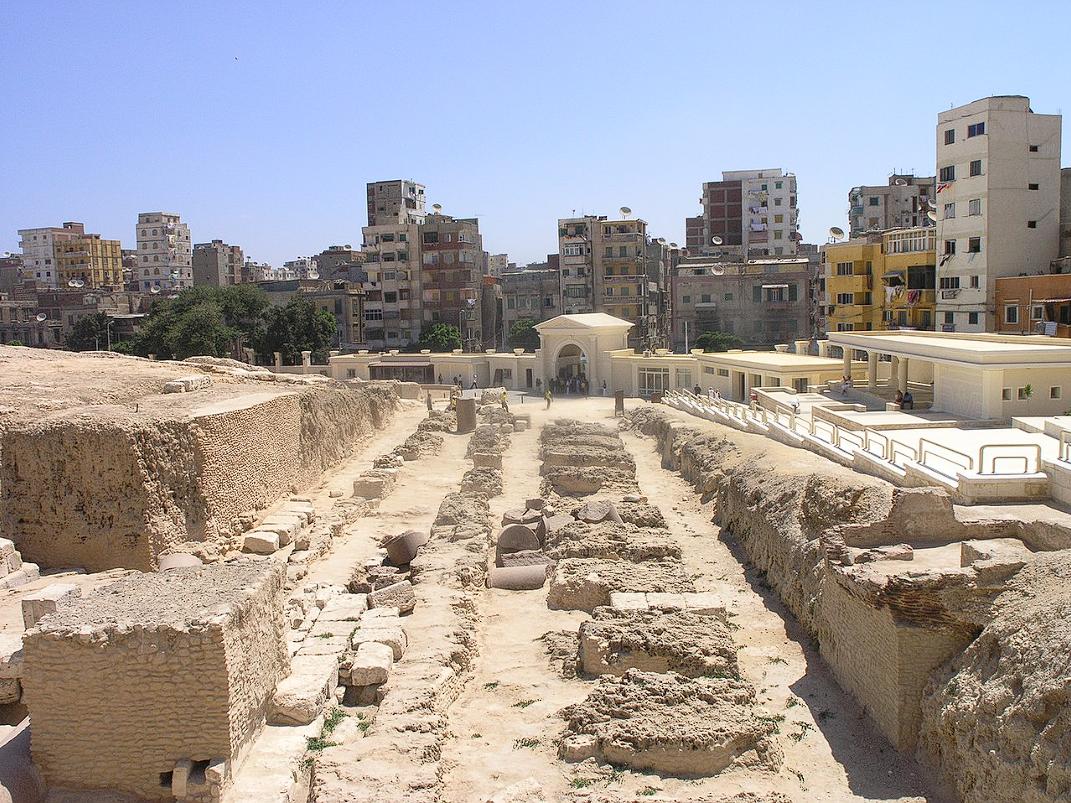The Legendary Center of Knowledge
A Beacon of Ancient Wisdom
The Library of Alexandria was one of the most significant intellectual hubs of the ancient world. Founded in the 3rd century BCE under the rule of Ptolemy I and his successors, it was designed to collect all human knowledge. Scholars from Greece, Egypt, India, and beyond contributed their works, making it a melting pot of global wisdom.
The Vast Collection of Scrolls
Historical estimates suggest that the library housed between 40,000 and 400,000 scrolls, covering subjects such as mathematics, astronomy, medicine, and literature. Among its rumored treasures were works from Archimedes, Euclid, and even lost texts from Homer. It aimed to be the ultimate repository of knowledge, fueling intellectual progress for generations.
A Cultural and Scientific Hub
More than just a library, it functioned as a research institution where scholars gathered to exchange ideas, conduct experiments, and expand the frontiers of human understanding. The library was part of the larger Mouseion, an academy dedicated to the pursuit of knowledge.

The Mysterious Destruction
The Fire of Julius Caesar
One of the most famous theories about the library’s destruction comes from the siege of Alexandria in 48 BCE. As Julius Caesar’s forces battled in the city, a fire broke out at the docks. Some accounts claim that the flames spread to the library, reducing countless scrolls to ashes. However, evidence suggests that only a portion of the collection may have been affected.
The Decline Under Roman and Christian Rule
Some historians argue that the library’s destruction was not a single catastrophic event but a gradual decline. Under Roman rule, resources may have dwindled, and later, Christian rulers may have viewed some texts as heretical, leading to their destruction. Emperor Aurelian’s conquest of Alexandria in the 3rd century CE and the closure of pagan temples under Emperor Theodosius in the 4th century CE could have further contributed to its downfall.
The Final Blow by Caliph Omar?
A controversial claim suggests that in 642 CE, after the Muslim conquest of Egypt, Caliph Omar ordered the remaining books to be burned, allegedly stating that if the books agreed with the Quran, they were unnecessary, and if they contradicted it, they were dangerous. However, many historians dispute this account, considering it more of a later legend than a historical fact.

Theories and Debates
Did the Library Ever Truly Exist as Described?
Some researchers question whether the Library of Alexandria was ever as vast and organized as ancient sources claim. They suggest that it may have been more of a loose collection of texts rather than a single massive institution.
Was the Knowledge Preserved Elsewhere?
While much was undoubtedly lost, some argue that many of the works survived in other libraries, such as those in Byzantium and Persia. The spread of knowledge through translations in the Islamic Golden Age and medieval Europe may have preserved fragments of the library’s legacy.
Lessons from History: Protecting Knowledge Today
The tragic loss of the Library of Alexandria serves as a cautionary tale about the fragility of knowledge. In the modern digital age, we assume information is permanent, but cyberattacks, natural disasters, or political censorship could still threaten our collective wisdom.

The Enduring Impact
A Symbol of Human Curiosity
Despite its mysterious disappearance, the library remains an enduring symbol of human curiosity and the pursuit of knowledge. It represents the ambition to understand the universe and the risks of losing what we have learned.
Modern Efforts to Rebuild
Inspired by its legacy, the modern Bibliotheca Alexandrina was established in Egypt in 2002. While it cannot replace the lost knowledge, it stands as a tribute to the original library’s ideals, promoting research, education, and cultural exchange.
What If It Had Survived?
Had the Library of Alexandria endured, human progress might have been accelerated by centuries. The knowledge contained within its walls could have advanced medicine, astronomy, and philosophy far beyond what we achieved in later eras.
Conclusion
The Library of Alexandria remains one of history’s greatest mysteries. Whether destroyed by fire, war, or neglect, its loss reminds us of the importance of preserving knowledge. What other secrets of the past might still be waiting to be uncovered? And in an age where information is more accessible than ever, how can we ensure that history does not repeat itself?
